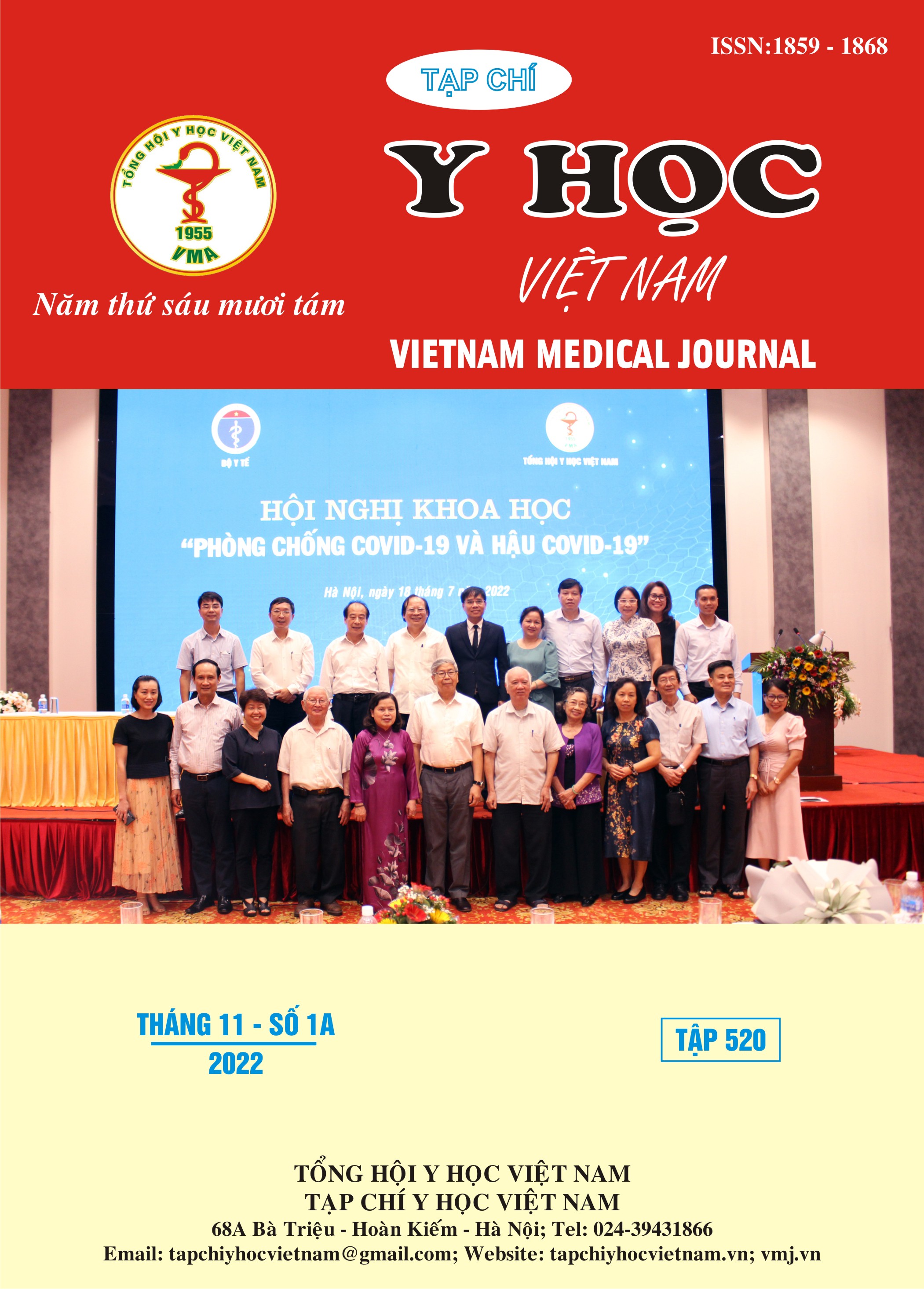ACCEPTABILITY OF IMPLANON SUBDERMAL IMPLANT AMONG 6-12 WEEKS POSTPARTUM WOMEN AT MEKONG HOSPITAL
Main Article Content
Abstract
Objective: To determine the acceptability of Implanon subdermal implant in 6-12 week-postpartum women. Methods: A cross-sectional study was conducted on 393 postpartum women who visited MeKong hospital after giving-birth 6-12 weeks, 18 years of age or older, from November 2021 to June 2022. Results: Acceptability rate of Implanon subdermal implant was 21,2%; the mean age was 31 years; 75,3% of women with above high school; 46,4% of women with one child; 77,6% women using contraception before this pregnancy. The percentage of women with correct knowledge about implant is 32,3%, the positive attitude towards this method is 41,5%. There was a significant correlation between good knowledge and acceptability of Implanon (PR=3,08, p<0,001). Conclusion: Improving knowledge of subdermal implant by advising implant to women from antenatal check-up, before discharge from hospital, and postnatal follow-up visit is recommended.
Article Details
Keywords
acceptability, knowledge, attitude, subdermal, Implanon, postpartum women, MeKong hospital
References
2. Faculty of sexual and reproductive health care clinical effectiveness unit, postnatal sexual and reproductive health. (2009) Faculty of sexual and reproductive health. Available at: http://www.fsrh.org/pdfs/ ceuguidance postnatal og.pdf [Accessed, 11 November 2014].
3. Andrew MK (2015). Post abortion contraception. UpToDate. available at: http://www.uptodate.com/ contents/postabortion-contraception [Accessed, 12 July 2015].
4. Brunson MR, Klein DA, Olsen CH, Weir LF, Roberts TA. Postpartum contraception: initiation and effectiveness in a large universal healthcare system. Comparative Study. Am J Obstet Gynecol. 2017;217(1):28.
5. ACOG (2017), Long-Acting Reversible Contraception: Implants and Intrauterine Devices, Practice Bulletin Number 186, November 2017.
6. Hồng Thành Tài (2015), "Kiến thức và thái độ của phụ nữ về que cấy tránh thai ở phụ nữ đang dùng Implanon tại bệnh viện Từ Dũ", Luận văn thạc sĩ y học, Đại học y dược thành phố Hồ Chí minh, tr.75.
7. Đỗ Thị Lan Hương (2017), "Tỷ lệ áp dụng biện pháp tránh thai hiện đại và các yếu tố liên quan ở phụ nữ sau mổ lấy thai tại bệnh viện Từ Dũ", Luận văn thạc sĩ y học, Đại học y dược thành phố Hồ Chí minh, tr.40-62.
8. Makola E. Knowledge, attitude, and practice of women regarding contraceptive implants, in Odendaalsrus, Lejweleputswa District, Free State Province. Master’s in medicine (Family medicine), University of Free State, https://scholar.ufs.ac.za
9. Barbieri MM, Herculano TB, Dantas Silva A, Bahamondes L, Juliato CRT, Surita FG. Acceptability of ENG-releasing subdermal implants among postpartum Brazilian young women during the COVID-19 pandemic. Int J Gynaecol Obstet. 2021 Jul;154(1):106-112. doi: 10.1002/ ijgo.13663. Epub 2021 Apr 29. PMID: 33656758; PMCID: PMC9087758.
10. DHMH/FHA/CMCH Mariland family planning & reproductive health program clinical guidelines. Postpartum Evaluation and Contraception, 2012.


